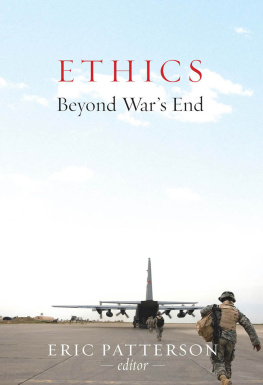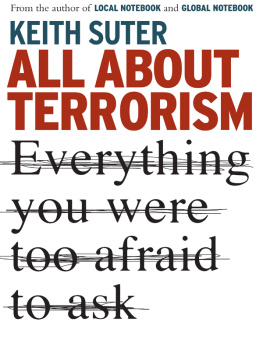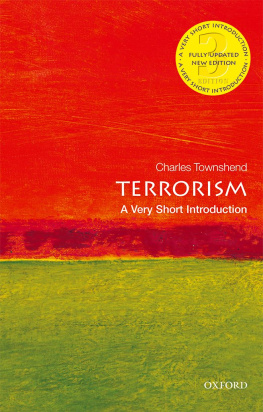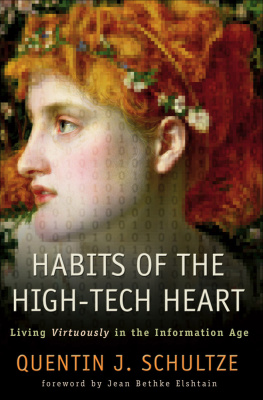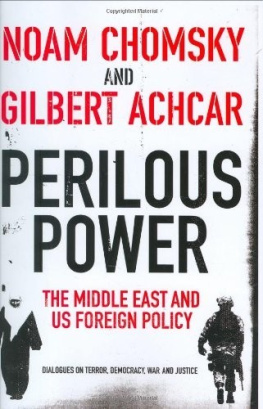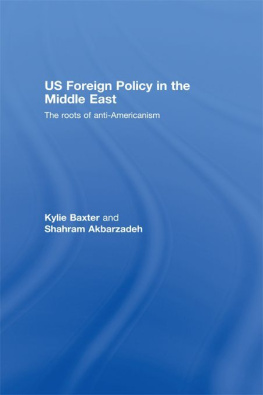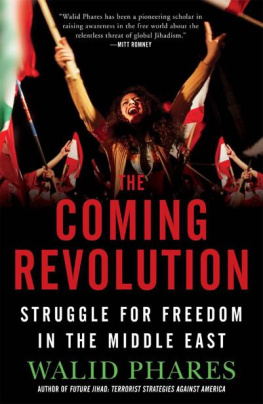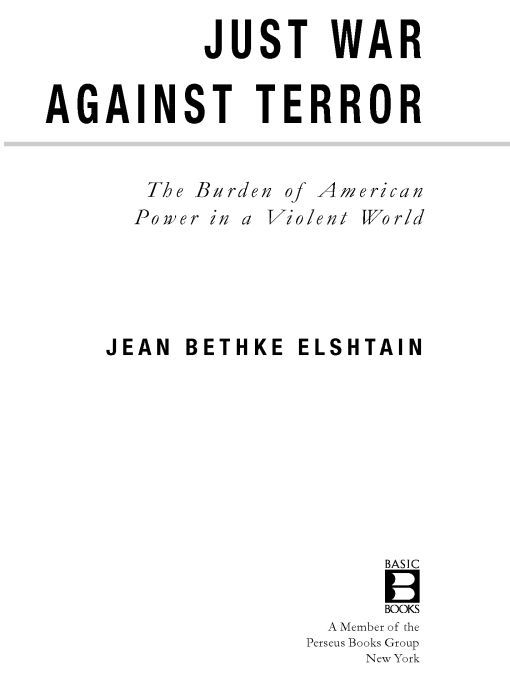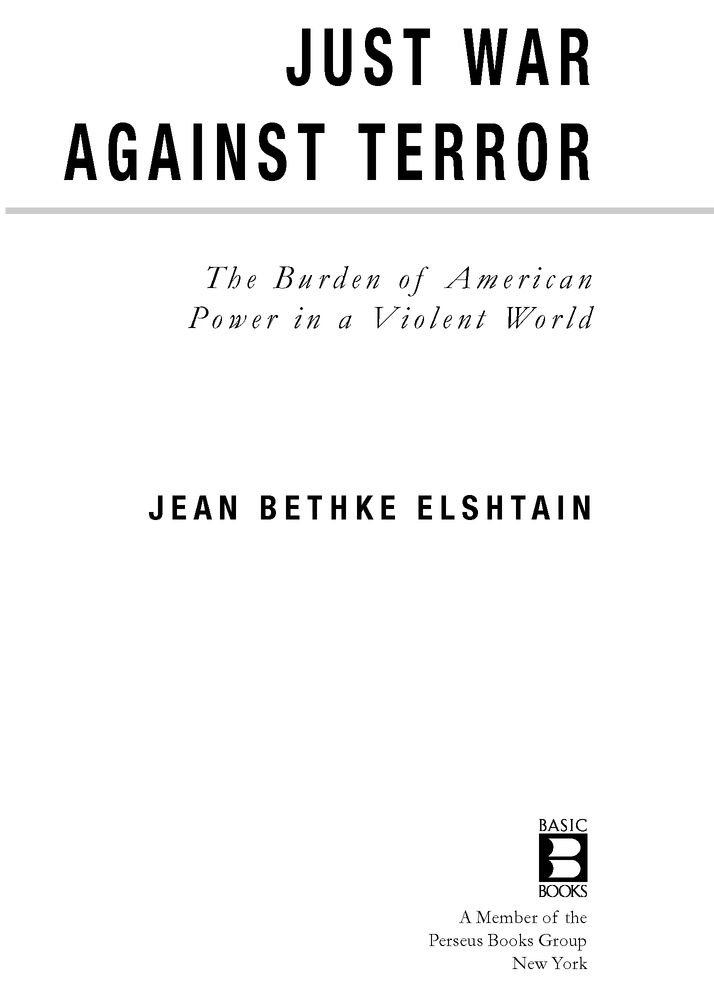Table of Contents
Books by Jean Bethke Elshtain
PUBLIC MAN , PRIVATE WOMAN: WOMEN IN SOCIAL AND POLITICAL THOUGHT
EDITOR, THE FAMILY IN POLITICAL THOUGHT
MEDITATIONS ON MODERN POLITICAL THOUGHT
WOMEN AND WAR
CO-EDITOR, WOMEN, MILITARISM, AND WAR
EDITOR, JUST WAR THEORY
POWER TRIPS AND OTHER JOURNEYS
CO-AUTHOR, BUT WAS IT JUST?: REFLECTIONS ON THE PERSIAN GULF WAR
DEMOCRACY ON TRIAL
CO-EDITOR, POLITICS AND THE HUMAN BODY
REAL POLITICS: AT THE CENTER OF EVERYDAY LIFE
AUGUSTINE AND THE LIMITS OF POLITICS
WHO ARE WE?: CRITICAL REFLECTIONS, HOPEFUL POSSIBILITIES
NEW WINE AND OLD BOTTLES: INTERNATIONAL POLITICS AND ETHICAL DISCOURSE
CO-AUTHOR, RELIGION AND AMERICAN PUBLIC LIFE
JANE ADDAMS AND THE DREAM OF AMERICAN DEMOCRACY
EDITOR, THE JANE ADDAMS READER
Once again
for
Jo Ann , Christopher, Bobby
It is essential to condemn what must be condemned, but swiftly and firmly. On the other hand, one should praise at length what still deserves to be praised. After all, that is why I am an artist, because even work that negates still affirms something and does homage to the wretched and magnificent life that is ours.
ALBERT CAMUS, RESISTANCE, REBELLION, AND DEATH
Now when victory goes to those who were fighting for the juster cause, can anyone doubt that the victory is a matter for rejoicing and the resulting peace is something to be desired?
ST. AUGUSTINE, THE CITY OF GOD
... It is hard for those who live near a Bank
To doubt the security of their money.
It is hard for those who live near a Police Station
To believe in the triumph of violence.
Do you think that the Faith has conquered the World
And that Lions no longer need keepers?...
T. S. ELIOT, CHORUSES FROM THE ROCK
ACKNOWLEDGMENTS
PORTIONS OF THIS MANUSCRIPT were sent to friends and acquaintances, some of whom responded with specific and detailed commentary and criticism. Because I do not wish to associate anyone else with my argument in whole or in partthey did not sign on to take the heat, as I did when I proposed writing this bookI am not going to single them out. But they know who they are, and I appreciate the criticism and the encouragement. Thanks also to my meticulous editor, Jo Ann Miller, and my agent, Glen Hartley. My family, by this time, looks upon the writing of books as routine, not exceptional, so the household flows on around the process. I doubt that this book is any better as a result, but it is certainly none the worse.
INTRODUCTION
Politics Is Not the Nursery
IN ALBERT CAMUSS NOVEL The Plague, an allegory on the coming of totalitarian terror, one of the protagonists comments acerbically on the naive reactions in a time of crisis of those he calls the humanists, people who see themselves as living in a reasonable world in which everything is up for negotiation. They believe there is a utilitarian calculus by which to gauge all human purposes and actions. Walking down the streets of Oran (the city in which the novel is set), humanists may smash underfoot a rat carrying the plague bacillus but claim, There are no rats in Oran. Why? Because there cannot be. That sort of thing does not happen anymore. In modernity, it simply must be the case that all human purposes and the means deployed to achieve them are open to adjudication and argument. Just get the aggrieved parties to really talk to one another, because that is the way reasonable people do things. The thinking of the reasonable, Camuss narrator suggests, is dominated by their own internal preferences, rather than the concrete realities of the situation.
Camuss humanists are unwilling or unable to peer into the heart of darkness. They have banished the word evil from their vocabularies. Evil refers to something so unreasonable, after all! Therefore, it cannot really exist. Confronted by people who mean to kill them and to destroy their society, these well-meaning persons deny the enormity of what is going on.
To such arguments the late political theorist Hannah Arendt would have had a sharp retort. Politics is not the nursery, she liked to say. Practicing a reasonableness based on the calculations of the humanist world of infinite negotiation and logical explanation is often of little use in helping us to face harsh evidence unfolding before our eyes. Moreover, naiveteincluding the conviction that horrific events are momentary setbacks and will surely be brought to heel by reasonable persons (who shrink from speaking of evil)can get thousands of innocents killed.
Certain critical events in the past remind us of this mordant fact. Looking back on twentieth-century fascism, we do not wring our hands and blame everyone but the Nazis for their murderous policies. Of course, it is important for historians and political analysts to take account of the political, social, and economic milieu out of which National Socialism emerged. But the difficulty and desperation of post-World War I conditionsrunaway inflation, a war-torn economy, and war reparations, all of which Germany faceddo not add up to the inevitability of the evil that was Nazism. To claim such is to set in motion an exculpatory strategy that, whether intentionally or inadvertently, rationalizes political pathology. The overriding truth and most salient fact of National Socialism is simply stated: A group of people took over state power, aimed to expand an Aryan Empire through ruthless force, and, as dictated by their ideology of biological racism, murdered whole categories of people not because of anything they had done but because of who they were.
Why, then, in the context of Americas war against terrorism, do so many tick off a list of American failures or even insist that America brought the horrors of September 11, 2001, on herself? Let me be clear that I exempt from this mode of argument the ludicrous claims that have arisen since that day, such as the slander that Israel carried out the attacks after having first warned Jews who worked in New Yorks World Trade Center towers to stay home that day, or the preposterous charge that American officials, up to and including the president of the United States, engineered the attacks to bolster their popularity. This sort of inflammatory madness exists outside the boundary of political debate and festers instead in the fever swamps of conspiracy theory.
Conducted within the boundary of reasonable political debate, however, are those arguments that an international war on poverty and despair, or a change in the direction of U.S. Middle Eastern policy, or a different U.S. policy toward Iraq will stay the hands of murderous terrorists in the future. Certainly these arguments deserve a hearing. Pushing more programs that deal with poverty and despair or rethinking American foreign policy, including our approach to Iraq, may have desirable outcomes. But no such change, either singly or together, will deter Osama bin Laden and those like him. To believe such is to plunge head-first into the strategy of denial characteristic of the citizens of Oran in Camuss novel. We could do everything demanded of us by those who are critical of America, both inside and outside our boundaries, but Islamist fundamentalism and the threat it poses would not be deterred.


